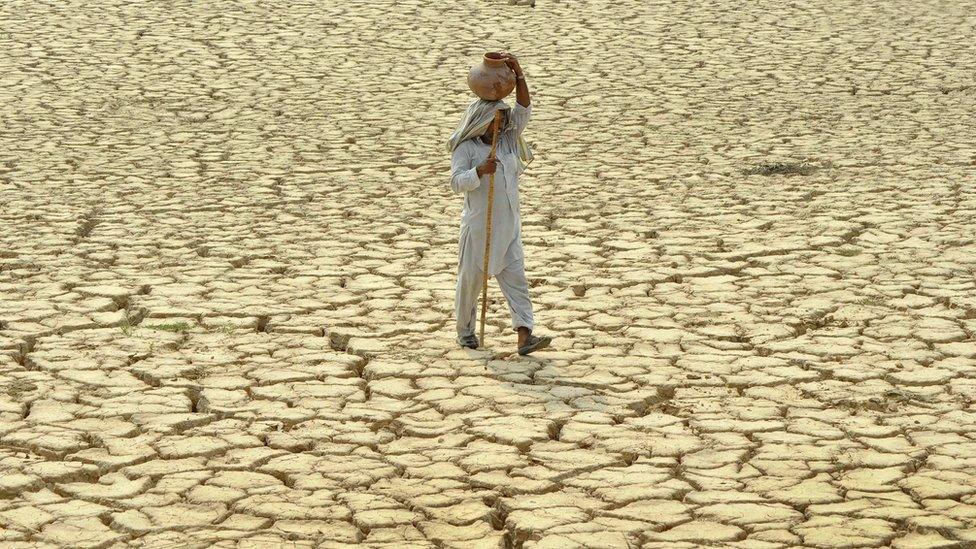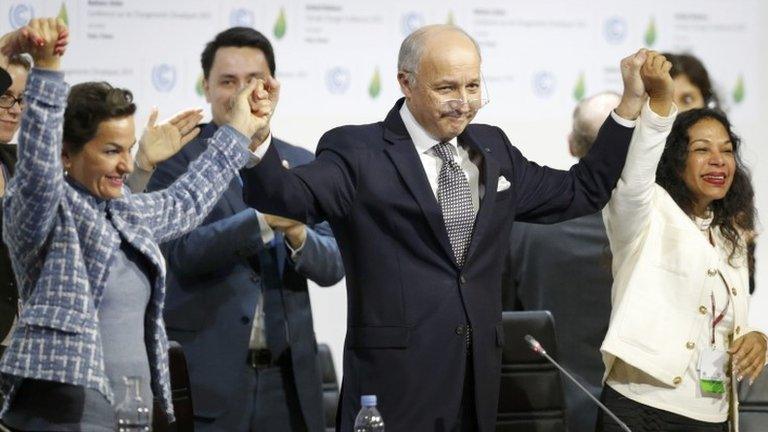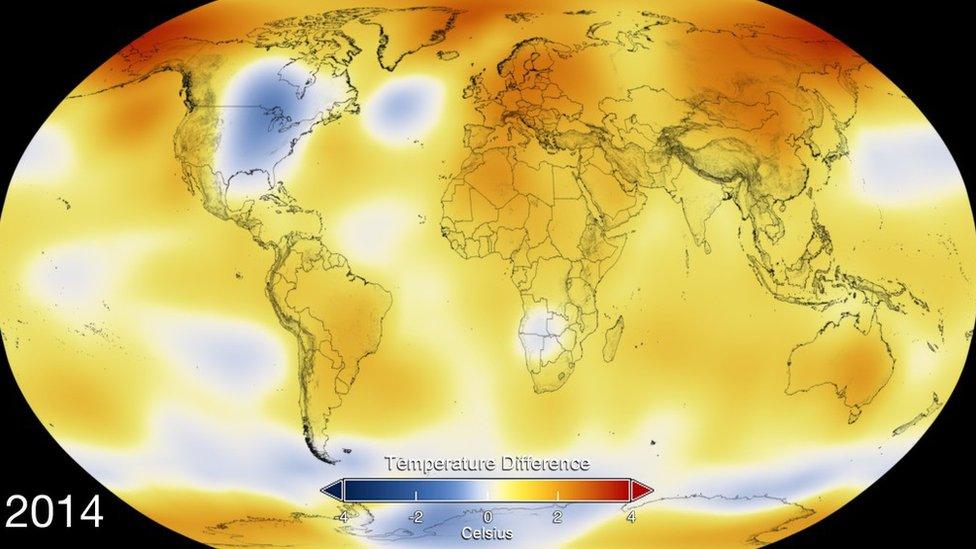Met office says 2016 'very likely' to be warmest on record
- Published

Warmer temperatures and heat waves increase the likelihood of droughts
A new global temperature forecast from the UK's Met Office says that 2016 is likely to be even warmer than 2015.
This year has already been provisionally declared the warmest on record thanks to a combination of global warming and a strong El Nino.
The Met Office believes that temperatures in 2016 could be 1.1C above pre-industrial levels.
Last week in Paris, countries agreed that the world should pursue efforts to limit the rise to 1.5C.
The new forecast, a combination of computer models and statistical methods, says that the global average temperature for the next 12 months is likely to be 0.84C above the 1961-1990 average.
When compared to the pre-industrial levels, the forecast predicts that next year's temperature will be 1.1C above the 1850-1899 average. This is edging closer to the 1.5C level that governments agreed last week they would do their best to keep under in the long term.
Last year, the forecast for 2015 predicted a central estimate of 0.64 above the average. Observational data from January to October this year shows the global mean temperature so far this year is running at 0.72 above 1961-1990.

The impact of El Nino will continue well into 2016 say researchers
"The forecast for next year is on the back of some other strong years," said the Met Office's Prof Adam Scaife.
"In 2014 we had 0.6 which was nominally a record, 2015 so far we've had 0.7 which is also nominally a record, and next year we are talking about 0.8 - so you can see that very rapid rise over three years and by the end of 2016 we may be looking at three record years in a row."
'Unprecedented events'
The impact of the strong El Nino that started this year continues through the first half of next year.
It's already been responsible for a reduced monsoon season in India, it's also weakened the Atlantic hurricane season and been involved in the early winter storms in Northern Europe in the past few weeks.
The forecasters at the Met Office say it is responsible for up to 0.2C of next year's value. In combination with continuing climate change, the forecasters believe it will lead to new records.
"There is an uncertainty range, the bottom end of the range for 2016 is very close to the current value for 2015, so it's not impossible that it will come out the same as 2015 but it is very likely to be higher," said Prof Scaife.
The Met Office says that the rise in temperature predicted for next year may not continue indefinitely - and may slip back under 1 degree over the coming years.
But they argue that the growing warming signal can combine in unpredictable ways with smaller natural fluctuations leading to "unprecedented events".
"It's when the natural variability rides on top of the climate change and gives us something we have not seen before," said Prof Scaife.
Follow Matt on Twitter @mattmcgrathbbc, external.
- Published13 December 2015

- Published9 November 2015
